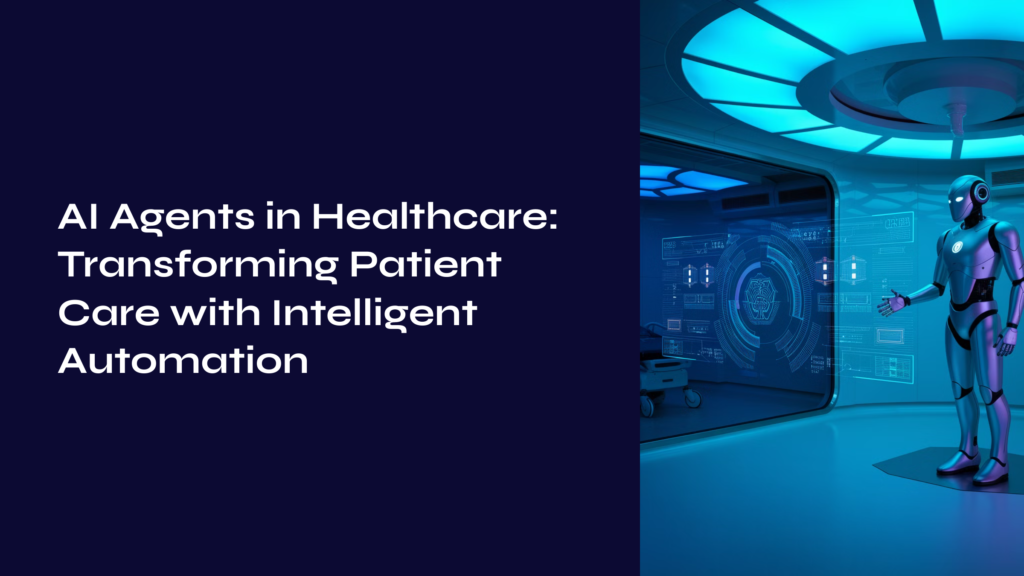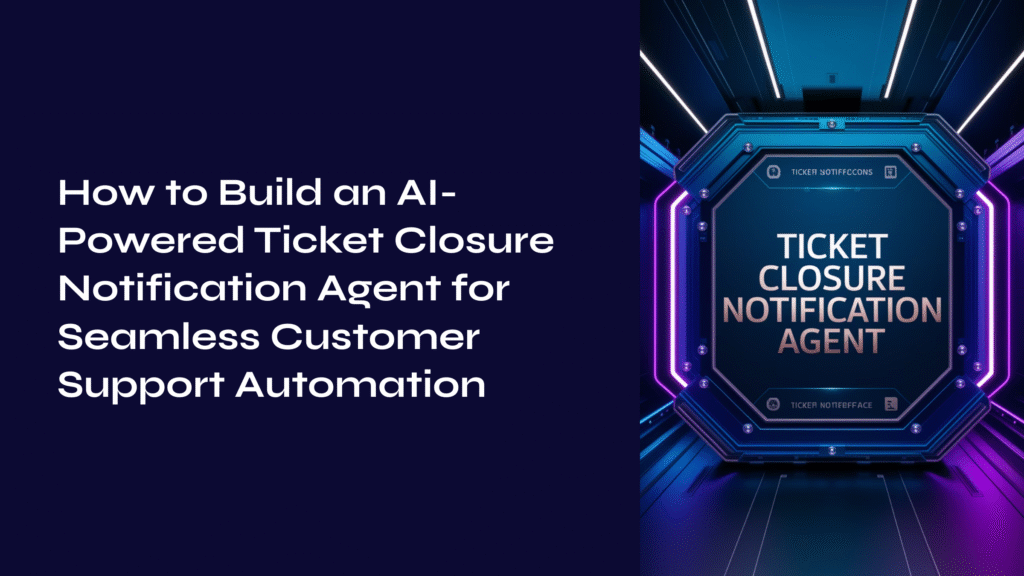Managing patient appointments is essential to delivering timely, high-quality care. But with rising patient volumes, varied scheduling needs, and stretched administrative teams, traditional scheduling methods often lead to inefficiencies, delays, and frustration – for both staff and patients.
To overcome these challenges, healthcare providers are embracing AI-powered Patient Appointment Scheduling Agents. These intelligent, conversational systems automate the entire scheduling process—analyzing provider availability, patient preferences, and urgency to deliver real-time, accurate bookings without manual intervention.
Unlike generic bots, these agents are built to understand the nuances of healthcare workflows, offering a seamless and personalized experience while easing the burden on staff.
In this article, we’ll break down what a Patient Appointment Scheduling Agent is, why it matters, how it works, the technology behind it, key challenges—and how advansappz helps healthcare organizations build and implement these smart solutions with confidence.
What is a Patient Appointment Scheduling Agent?
A Patient Appointment Scheduling Agent is an advanced conversational AI assistant integrated into hospital systems to automate and streamline the process of booking, confirming, rescheduling, or canceling medical appointments. Unlike traditional static forms or basic chatbots, this AI agent leverages cutting-edge technologies to offer a more efficient, intuitive, and personalized experience.
Key features include:
- Natural Language Understanding (NLU): The agent processes patient input in everyday language, making interactions seamless and user-friendly.
- Smart Calendar Logic: It matches appointments with real-time provider availability, ensuring optimal scheduling.
- Urgency Triaging Algorithms: The system prioritizes urgent medical cases based on severity, ensuring timely attention for critical situations.
- Omnichannel Capabilities: The AI agent can engage with patients across multiple platforms, including chat, SMS, email, or voice, offering flexibility in communication.
- Context-Aware Decision-Making: It makes intelligent decisions based on factors like medical urgency, patient history, location, and personal preferences.
This AI-powered solution doesn’t just follow predefined rules—it uses advanced algorithms to make context-sensitive decisions that enhance patient care and improve appointment management.
Why Manual Patient Scheduling Causes Errors and Inefficiencies
Manual patient scheduling is prone to errors and inefficiencies, especially in today’s fast-paced clinical environments. Common challenges include:
- Double Bookings & Overlaps: Human error can lead to scheduling conflicts, causing appointments to be booked at the same time.
- Delayed Responses: Patients calling outside of working hours may experience delays in scheduling or responses, impacting satisfaction.
- No-Shows & Cancellations: Without automated reminders or flexible options, patients may miss appointments or cancel at the last minute.
- Inefficient Triaging: When urgency is not assessed at the time of booking, critical cases may be overlooked or scheduled at inconvenient times.
- Resource Wastage: Empty time slots in a physician’s schedule due to poor management lead to underutilized resources.
As hospitals grow and patient expectations increase, these inefficiencies hinder the ability to provide high-quality care. Automating the scheduling process with AI is no longer a luxury—it’s essential for improving accuracy and efficiency.
How Does a Patient Appointment Scheduling Agent Work?
A Patient Appointment Scheduling Agent automates the entire process of booking, confirming, and managing medical appointments. By leveraging AI and integrated systems, it provides a seamless experience for both patients and healthcare providers. Here’s how it works:
- Patient Inquiry
The process begins when a patient sends a message through their preferred channel—such as WhatsApp, a chatbot, or a voice interface—requesting an appointment. For example, a patient may say, “I need to see a dermatologist next week.” - Intent & Entity Recognition
The AI agent quickly identifies key information from the request, such as the type of specialist, preferred time, location, and urgency of the appointment. This allows the system to understand the patient’s exact needs. - Data Sync
The agent accesses real-time availability from the healthcare provider’s calendar, which is integrated with the provider’s Electronic Health Records (EHR) or Electronic Medical Records (EMR), ensuring accurate and up-to-date scheduling. - Urgency Evaluation
Using AI-powered triaging algorithms, the agent evaluates whether the patient’s symptoms require urgent attention, ensuring that critical cases are given priority in the scheduling process. - Slot Recommendation
The agent suggests the top three available time slots based on the patient’s preferences, providing reasoning such as “soonest available,” “closest to your location,” or “most convenient for your preferred time.” - Confirmation & Reminder
After the patient selects a time, the appointment is confirmed, and the agent sends a confirmation message. Automated reminders are also set up to ensure the patient remembers their appointment. - Self-Service Modifications
The agent enables patients to reschedule or cancel appointments without requiring human intervention, saving both time and resources for the healthcare provider.
This streamlined process ensures a more efficient, personalized, and accessible experience for both patients and healthcare providers, ultimately improving the overall appointment management system.
Why Build a Patient Appointment Scheduling Agent?
Building a Patient Appointment Scheduling Agent offers significant advantages for both healthcare providers and patients. By leveraging AI and automation, it transforms the scheduling process, improving efficiency, accuracy, and patient satisfaction. Here are the key reasons why building a scheduling agent is essential:
- Improved Efficiency
Automating appointment scheduling reduces the administrative burden on staff, freeing up time for more critical tasks. The AI agent handles routine scheduling tasks, allowing healthcare providers to focus on patient care. - 24/7 Availability
Unlike traditional scheduling methods, a scheduling agent is always available, providing patients with the flexibility to book, reschedule, or cancel appointments at any time, even outside business hours. - Reduced Errors
Human errors such as double bookings, missed appointments, or scheduling conflicts are minimized with an AI agent. By pulling real-time data from integrated systems, the agent ensures that scheduling is accurate and up-to-date. - Improved Patient Experience
A seamless, user-friendly experience is created for patients, allowing them to interact with the scheduling system in a way that suits them—whether it’s through a chatbot, voice interface, or messaging app. This enhances patient satisfaction and engagement. - Optimized Resource Allocation
The scheduling agent uses smart algorithms to recommend the best time slots based on the physician’s availability and patient preferences, optimizing the use of available resources and reducing unused time slots. - Better Management of Urgent Cases
AI-driven triaging ensures that urgent cases are prioritized and scheduled promptly, helping healthcare providers address critical situations in a timely manner. - Cost Savings
Automating scheduling reduces the need for manual intervention, lowering operational costs. It also minimizes the risk of overbooking or underbooking, ensuring that both time and resources are used effectively.
What Are the Technologies Behind a Patient Appointment Scheduling Agent?
A robust and flexible technology stack is essential for building an effective and scalable Patient Appointment Scheduling Agent. This stack ensures seamless integration, rapid deployment, and reliable performance. The core components of the technology stack include:
- AI/ML Models
Advanced AI models like OpenAI GPT, Google Dialogflow, BERT, spaCy, and Rasa power the agent’s ability to engage in natural, intelligent conversations and respond accurately to patient requests. - Natural Language Understanding (NLU) / Natural Language Processing (NLP) Engine
NLU/NLP capabilities are powered by Azure Cognitive Services, AWS Lex, and custom-trained Large Language Models (LLMs), enabling the agent to interpret and understand patient inputs with high precision, whether in text or voice form. - Integration Layer
Key healthcare standards and protocols such as HL7, FHIR APIs, Webhooks, and RESTful APIs ensure seamless communication with hospital systems, facilitating smooth integration with Electronic Health Records (EHR) and other medical systems. - Backend Technologies
Technologies like Node.js, Python (with FastAPI), and Flask provide a scalable and reliable environment for processing requests and managing data. - Frontend/UI
React.js, Vue.js, and Flutter for mobile apps are used to create user-friendly and responsive interfaces, ensuring accessibility and ease of use across desktop and mobile platforms. - Cloud Infrastructure
Cloud providers like AWS, GCP, and Azure, with HIPAA-compliant setups, guarantee the security and scalability of the platform while managing large volumes of patient data in compliance with strict privacy standards. - Security
Industry-standard security measures such as AES-256 encryption, Role-Based Access Control (RBAC), and comprehensive audit logs ensure that patient data remains secure at all times. - Messaging Interfaces
The agent communicates with patients via popular messaging platforms, including WhatsApp Business API, SMS (via Twilio), voice assistants, and webchat, offering an omnichannel approach for greater accessibility.
This technology stack ensures the efficient, secure, and scalable operation of the Patient Appointment Scheduling Agent, delivering a seamless experience for healthcare providers and patients alike.
What Are the Common Implementation Challenges—and How We Solve Them?
Implementing a Patient Appointment Scheduling Agent comes with its unique set of challenges. These challenges range from system integration to ensuring compliance with healthcare standards. Here’s how these obstacles are addressed effectively:
- Integration with Legacy EHRs
Integrating with existing Electronic Health Records (EHR) systems such as Epic, Cerner, and Athena can be complex. We overcome this by offering pre-built connectors and custom APIs that enable smooth integration with various legacy EHR systems, ensuring seamless data flow. - Handling Diverse Patient Inputs
Patients may communicate through a variety of channels, using different terminologies and phrasing. To address this, our solution utilizes context-aware Natural Language Understanding (NLU) models, specifically trained on healthcare terminology, ensuring that the system accurately interprets patient requests, no matter how they’re phrased. - Maintaining HIPAA Compliance
Ensuring the privacy and security of patient data is critical. Our solution includes encrypted data pipelines and a full audit trail to maintain HIPAA compliance, safeguarding sensitive information during the entire scheduling process. - Managing High Concurrency
Healthcare providers often need to handle large volumes of appointment requests simultaneously. To tackle this, we leverage scalable microservices built on Kubernetes or serverless architecture, which can easily handle high concurrency without compromising on performance. - Custom Triaging Logic
Medical appointments require prioritization based on urgency. Our AI-assisted triaging logic includes symptom-to-specialty mapping and urgency classification, ensuring that critical cases are addressed promptly while optimizing resources effectively.
These solutions enable a streamlined, secure, and efficient implementation of the Patient Appointment Scheduling Agent, addressing the unique challenges faced by healthcare providers.
How advansappz Helps You Build It
As your AI development partner, advansappz offers a comprehensive approach to building a Patient Appointment Scheduling Agent that meets your unique needs:
- Deep Domain Expertise
We bring extensive knowledge of healthcare workflows, ensuring that the solution aligns perfectly with your clinical and operational requirements. - Custom AI Agent Development
Whether starting from scratch or enhancing your existing systems, we develop tailored AI agents that integrate seamlessly with your environment. - End-to-End Integration
We provide full integration services with Electronic Medical Records (EMRs), Customer Relationship Management (CRM) systems, and patient portals, ensuring a smooth connection across your tech stack. - Testing and Validation
Our rigorous testing and validation frameworks ensure the accuracy and reliability of the agent before it goes live, preventing disruptions and ensuring a high-quality patient experience. - Analytics Dashboard
We provide a comprehensive analytics dashboard to track booking trends, agent performance, and patient satisfaction, enabling data-driven decision-making for continuous improvement.
By collaborating closely with healthcare administrators and IT teams, we design solutions that address your clinical, operational, and compliance needs effectively.
Conclusion
As patients increasingly expect personalized and instant service, healthcare providers must adapt to meet these evolving demands. A Patient Appointment Scheduling Agent powered by AI is the modern solution to outdated systems, delivering intelligent automation, improved patient experiences, and measurable ROI for hospitals and clinics.
advansappz is your expert partner in creating secure, scalable, and intelligent scheduling agents that transform patient engagement.Contact us today to build the future of healthcare—one appointment at a time.
FAQs About Patient Appointment Scheduling Agents
- Is the system secure and HIPAA-compliant?
Yes, our scheduling agents are built with HIPAA-compliant cloud infrastructure, robust access control mechanisms, and encryption to ensure patient data is protected. - Can the agent understand multiple languages or dialects?
Absolutely. Our multilingual NLP engine is designed to understand local dialects as well as major global languages, making it accessible to a diverse patient base. - Is it suitable for multi-specialty hospitals?
Yes, the agent can be customized to handle multi-specialty triaging, efficiently routing patient requests to the appropriate specialist based on their needs. - Can patients reschedule or cancel appointments through the agent?
Yes, patients can easily reschedule or cancel appointments through a simple, natural conversation with the agent, without the need for staff intervention. - What is the typical implementation timeline?
Implementation timelines typically range from 4 to 10 weeks, depending on the complexity of the system, including integration with existing platforms and training.










